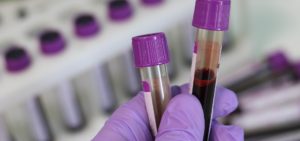Emergency Hospital Admissions in Patients from Care Home Settings
AIMS The project aims to develop clinical tools to help healthcare professionals identify when people living in care homes need to come into hospital if
Home > Project summaries > Page 2
Find out about the latest developments as part of the PIONEER programme. Learn more about the research projects granted access to the PIONEER dataset and keep up to date on the findings from this research.
AIMS The project aims to develop clinical tools to help healthcare professionals identify when people living in care homes need to come into hospital if
AIMS This project aims to understand how diseases and drug treatments interact over time to worsen or improve a patients’ health. It will look at

AIMS Research is needed to improve how hospitals work to meet the needs of patients with multiple long-term conditions (MLTCs). BACKGROUND Hospital care is designed

AIMS To understand if intravenous (IV) fluid through a ‘drip’ is an effective treatment for patients who have raised lactate level in hospital. BACKGROUND Lactate

AIMS Research is needed to better predict who might be at most risk of severe infections after surgery. This research aims to develop a tool

AIMS Research is needed to improve the number of patients receiving the right medications after a heart attack. BACKGROUND Coronary artery disease continues to be

AIMS This project will explore whether patients with TB have more severe illness from COVID-19 than those without TB. It will consider whether the patients

Aims This project aims to describe the impact of electronic orders on laboratory turnaround times for processing blood tests at the Queen Elizabeth Hospital in Birmingham. Electronic orders are the ability

Aims To learn more about the best care pathways for Acute Myeloid Leukaemia (AML) patients, by analysing data using artificial intelligence. Background Acute Myeloid Leukaemia is a rare cancer. The best

Aims To use hospital admissions data to look at the likelihood of illnesses related to malnutrition in areas near to new food banks. Background Over the past ten years there has been a
Follow the link below to begin your data request journey

This website uses cookies so that we can provide you with the best user experience possible. Cookie information is stored in your browser and performs functions such as recognising you when you return to our website and helping our team to understand which sections of the website you find most interesting and useful.
Strictly Necessary Cookie should be enabled at all times so that we can save your preferences for cookie settings.
If you disable this cookie, we will not be able to save your preferences. This means that every time you visit this website you will need to enable or disable cookies again.
This website uses Google Analytics to collect anonymous information such as the number of visitors to the site, and the most popular pages.
Keeping this cookie enabled helps us to improve our website.
Please enable Strictly Necessary Cookies first so that we can save your preferences!
More information about our Cookie Policy